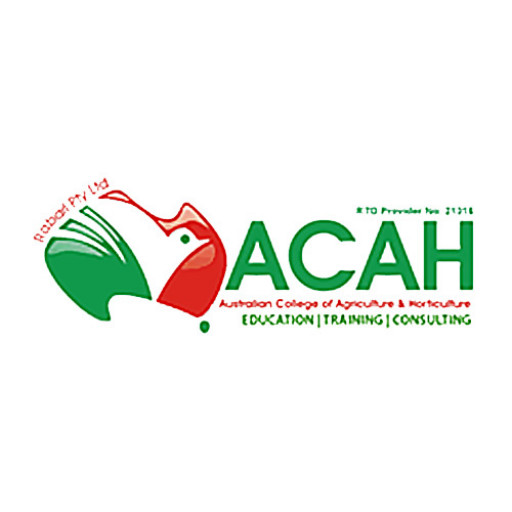Landscaping is a dynamic and creative field that combines design, horticulture, environmental sustainability, and construction skills to create and maintain aesthetically pleasing and functional outdoor spaces. The Landscaping program at Swinburne University of Technology offers students a comprehensive education in landscape design, planning, and management, preparing graduates to meet the demands of the industry with confidence and expertise. Throughout the course, students will explore a wide range of topics including landscape construction, plant selection and management, urban design, environmental sustainability, and project management. The program emphasizes practical skills through hands-on learning experiences, which include site analysis, digital design techniques, and real-world project work. Students will gain knowledge about sustainable practices and how to incorporate environmentally responsible solutions into their designs, ensuring they can contribute positively to urban and rural environments. The curriculum is designed to foster creativity while developing technical proficiency, equipping students with the ability to create innovative landscape solutions that enhance community living spaces, parks, private gardens, commercial areas, and public infrastructure. Collaboration is a key component of the program; students will work on team projects that simulate professional industry practices, preparing them for the collaborative nature of landscape projects. Graduates of the Landscaping program will be well-equipped with the skills needed for careers in landscape architecture, landscape design, urban planning, environmental consultancy, and horticulture management. They will be capable of applying their knowledge to a variety of contexts, including residential, commercial, and public spaces, and will have the foundational expertise to pursue further specialization or postgraduate studies. Swinburne’s state-of-the-art facilities and strong industry connections ensure students receive a high-quality education that aligns with current industry standards and practices. Whether aiming to start your own landscape design business or work for established organizations, this program provides the essential skills and knowledge to succeed and innovate within the vibrant field of landscaping.
The Bachelor of Landscape Design at Swinburne University of Technology offers students a comprehensive education in the principles and practices of landscape design, planning, and management. This program is designed to equip students with the creative, technical, and practical skills necessary to develop sustainable and innovative landscape solutions across a variety of settings, including urban, suburban, and rural environments. Throughout the course, students explore core topics such as environmental planning, site analysis, planting design, project management, and the use of digital tools and technologies for landscape visualization and communication. The curriculum emphasizes a strong foundation in ecological sustainability, urban beautification, and environmental stewardship, aligning with contemporary industry demands for environmentally responsible design practices.
Students engage in hands-on learning through studio-based projects, workshops, and real-world case studies that foster creativity and problem-solving capabilities. The program encourages collaboration with industry partners and offers opportunities for internships and work placements, enabling students to gain practical experience and professional networks. Additionally, coursework covers the legal and ethical considerations involved in landscape projects, including planning regulations, land use policies, and community engagement processes. With an emphasis on innovation and sustainability, graduates of this program are prepared for diverse career paths in landscape architecture, environmental planning, urban design, and consulting.
Swinburne’s state-of-the-art facilities, including design studios, computer labs with the latest CAD and GIS software, and outdoor project areas, support student learning and project development. The program is delivered by experienced educators and industry professionals dedicated to fostering student success and industry readiness. Upon graduation, students will possess a well-rounded skill set that combines artistic sensibility with technical expertise, enabling them to create functional, aesthetically pleasing, and ecologically responsible landscapes that enhance communities and environments. The Bachelor of Landscape Design at Swinburne is an excellent choice for students passionate about shaping the environment through innovative design and sustainable practices.
The Bachelor of Landscape Architecture at Swinburne University of Technology requires students to complete a comprehensive curriculum designed to develop expertise in the planning, design, and management of landscapes. The programme typically comprises core subjects that cover fundamental principles of landscape architecture, including design studios, landscape ecology, environmental sustainability, and GIS applications. Students are expected to undertake foundational courses such as Introduction to Landscape Architecture, Design Process, and Visual Communication, which lay the groundwork for more advanced study.
In addition to core subjects, electives allow students to specialize in areas such as urban design, environmental restoration, or landscape management. The programme emphasizes practical experience, often incorporating industry placements, workshops, and collaborative projects with real-world clients. These opportunities prepare graduates for professional practice by providing hands-on learning under the mentorship of experienced landscape architects.
The degree also integrates theoretical and research components, encouraging students to critically analyze contemporary issues in landscape architecture, including climate change adaptation, sustainable development, and cultural heritage conservation. Throughout their studies, students develop competencies in design software, mapping techniques, and project management, which are essential skills for a successful career in the field.
Assessment methods include project submissions, visual presentations, written reports, and examinations, ensuring a well-rounded evaluation of students’ technical, creative, and analytical abilities. To graduate, students must complete the required coursework, participate in industry placements, and submit a final portfolio or capstone project demonstrating their comprehensive design skills and professional readiness. The programme aims to produce graduates equipped with innovative design solutions, ethical practice standards, and a commitment to sustainable landscape development, aligning with current industry demands and societal needs.
The Bachelor of Landscape Design at Swinburne University of Technology provides students with multiple financing options to support their studies. Domestic students may be eligible for federal government financial assistance, including HECS-HELP, which allows students to defer their tuition fees until they are earning above a certain income threshold. Commonwealth Supported Places (CSP) are available, reducing the overall cost of tuition. Additionally, students can access various scholarship opportunities offered by Swinburne University, including merit-based and equity scholarships, to help offset expenses. International students are required to pay full tuition fees upfront or arrange payment through approved payment plans. Swinburne also offers payment plans that allow students to spread the cost of their studies over manageable installments, easing financial burden. Private student loans are another option for those who need additional funding, although students are encouraged to consider government-supported options first due to favorable loan conditions. The university's financial counseling service provides guidance on budgeting and managing study costs, ensuring students can plan effectively for their financial commitments. External financial aid programs and sponsorships from industry partners may also be available, depending on eligibility. It is recommended that prospective students review the university’s official financial aid webpage and contact the admissions office for personalized assistance. Overall, Swinburne University aims to make education accessible by offering a range of flexible and supportive financing options for both domestic and international students pursuing a degree in Landscape Design.
The Bachelor of Landscape Architecture at Swinburne University of Technology is a comprehensive undergraduate program designed to equip students with the skills and knowledge necessary for careers in landscape design, planning, and management. The program emphasizes a blend of practical skills, environmental understanding, and creative design, preparing graduates for the dynamic challenges of landscape architecture in various settings such as urban, suburban, and rural environments. Students engage with a diverse curriculum that covers topics including landscape design, ecology, sustainability, site planning, and urban design principles. The program places a strong emphasis on sustainable practices and environmental stewardship, encouraging students to develop solutions that are both innovative and environmentally responsible.
Throughout their studies, students have the opportunity to work on real-world projects, often collaborating with local communities, government bodies, and industry partners. This hands-on approach ensures that graduates are workplace-ready and able to manage complex projects from conceptualization to implementation. Swinburne's facilities support this practical learning with state-of-the-art laboratories, design studios, and digital modeling tools. The program also frequently incorporates field trips and site visits to provide students with firsthand experience in landscape projects, enhancing their understanding of site-specific conditions and ecological considerations.
Graduates of the program are prepared for a variety of roles, including landscape architects, urban planners, environmental consultants, and park and recreational space designers. The program also provides a pathway for further studies in related fields such as urban planning or environmental management. The university’s strong connections with industry ensure that the curriculum remains current and aligned with industry needs, offering students opportunities for internships and professional networking.
Overall, the Bachelor of Landscape Architecture at Swinburne University aims to foster creative, environmentally conscious, and skilled landscape architects who can positively impact their communities and the environment. The program’s focus on sustainability, design excellence, and practical experience makes it an attractive choice for students passionate about creating beautiful and functional outdoor spaces.







